
More than 150 species make up a group of native bees called mason bees, which handled pollination here long before European honeybees arrived.
“Solitary bees such as mason bees are perfectly adapted for great pollination,” says Matthew Shepherd, director of outreach and education for the Xerces Society for Invertebrate Conservation.
Unlike honeybees that gather pollen in packages on their hind legs, mason bees belly-flop into blossoms, and the pollen clings to the hairs on their bodies. As a result, they can pollinate up to 2,000 flowers per day, according to Thyra McKelvie of Rent Mason Bees in Bothell, Washington. She also notes that each mason bee can do the work of 100 honeybees. And because they're well-adapted to the climate, they fly in cooler temperatures and brave drizzly conditions.
Gentle Gardeners
The busy fliers are valuable in home gardens because they pollinate an array of early-blooming plants. Plus, they're easy to raise and fun to watch.
Esta historia es de la edición February/March 2022 de Birds & Blooms.
Comience su prueba gratuita de Magzter GOLD de 7 días para acceder a miles de historias premium seleccionadas y a más de 9,000 revistas y periódicos.
Ya eres suscriptor ? Conectar
Esta historia es de la edición February/March 2022 de Birds & Blooms.
Comience su prueba gratuita de Magzter GOLD de 7 días para acceder a miles de historias premium seleccionadas y a más de 9,000 revistas y periódicos.
Ya eres suscriptor? Conectar

Basics of Hydroponics
Use these top tips and plant picks to have a successful soil-free garden
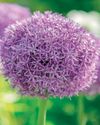
Rooted in Resilience
These hardy perennials will thrive in most zones
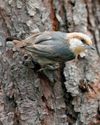
Social and Supportive
Brown-headed nuthatches take a helpful approach to raising their young
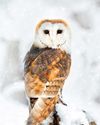
All About Owl Pellets
And why you should give a hoot about them
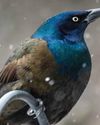
Ask the Experts
Advice from our pros about houseplants, bird feeding and more

BRING THE OUTDOORS IN
Making a terrarium is about as close as you can get to a Zen DIY project. Once you have gathered the proper materials and squared away your plant selections, it's as simple as layering it all together and watching your mini ecosystem thrive. Here, I'll walk you through my foolproof process and cover all the required elements for good filtration, healthy soil, strong root growth and resistance against fungus and disease.

GROW THIS. NOT THAT
Six easy-to-grow houseplants—and six that may not be the right choice for you
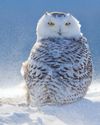
Winter MAGIC
Forecasts may be frigid, but grab your binoculars because birding opportunities are still incredible
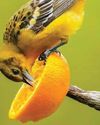
Sense or Nonsense? - Why some birds can taste and smell - but others can't
Does a porcelain berry taste like a blueberry to a gray catbird? Does a block of lard smell like frying bacon to a northern flicker? The short answer is no. While some avian species do have a well-adapted sense of taste or smell, they can't distinguish between flavors and odors the way humans can. They're not picking up every ingredient in the suet you put out, says José Ramírez-Garofalo, an ornithology researcher at Rutgers University in New Jersey and the director of Freshkills Biological Station in Staten Island, New York.

Maple Mania - Amazing facts about this fall foliage mainstay
Amazing facts about this fall foliage mainstay